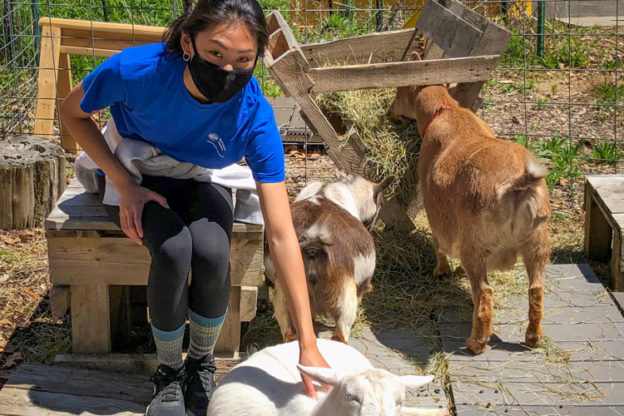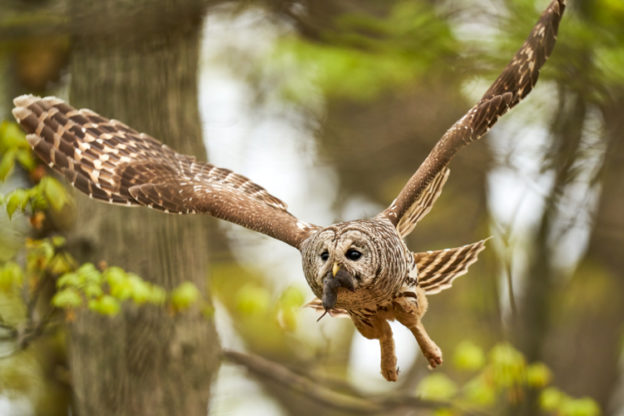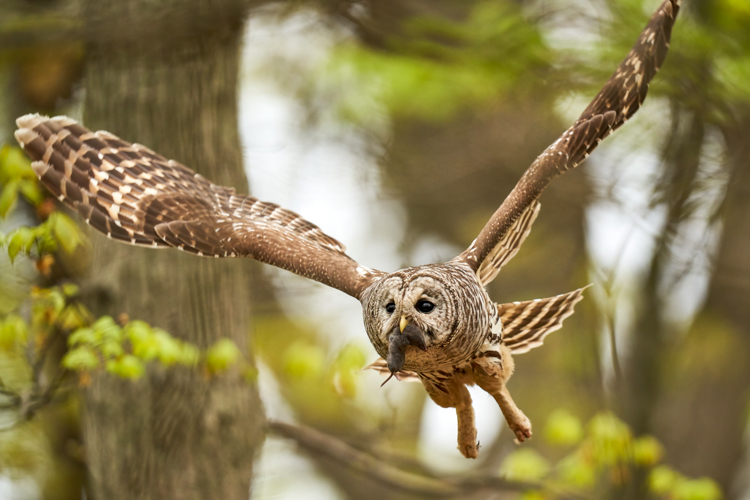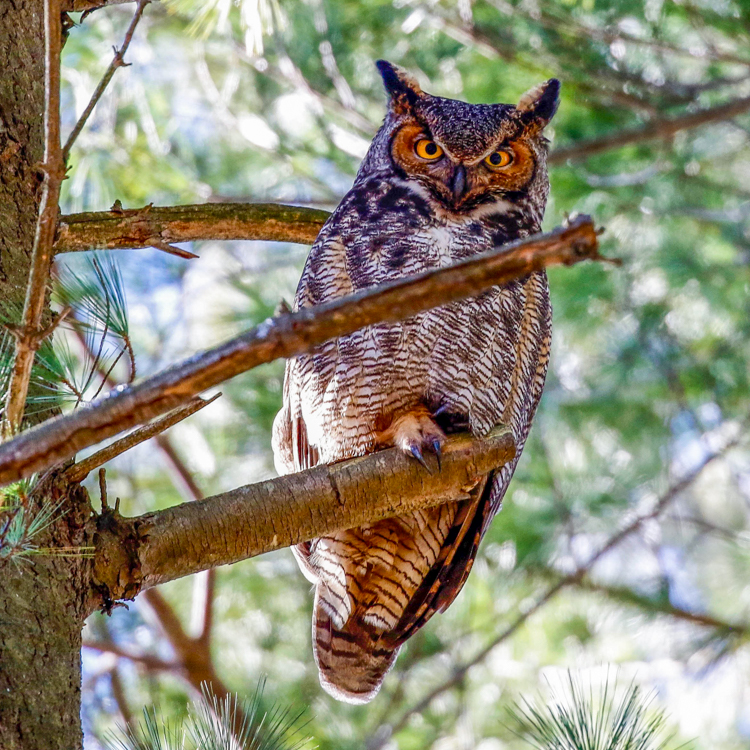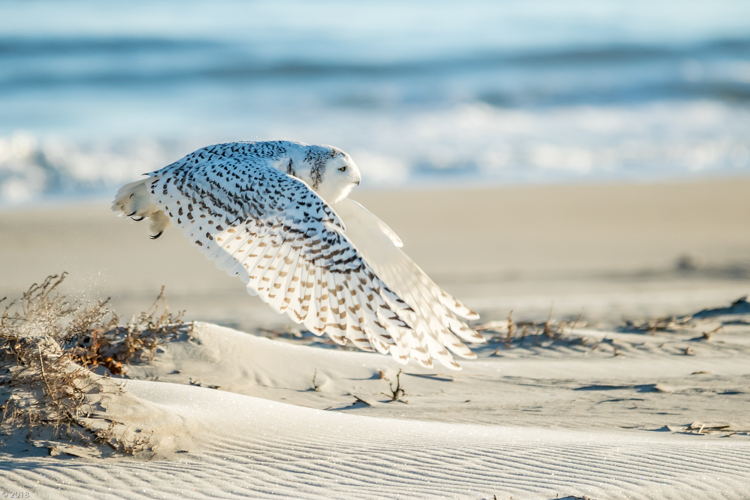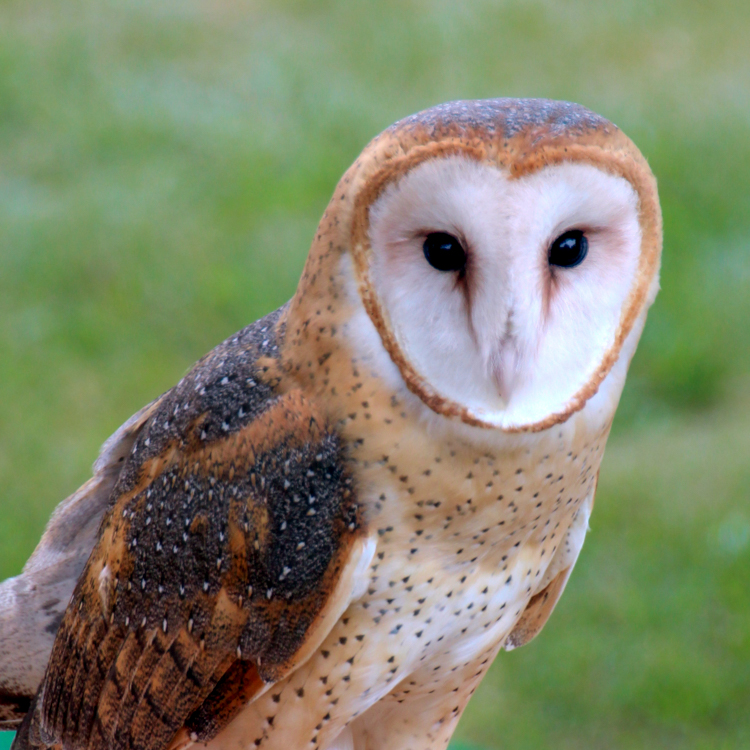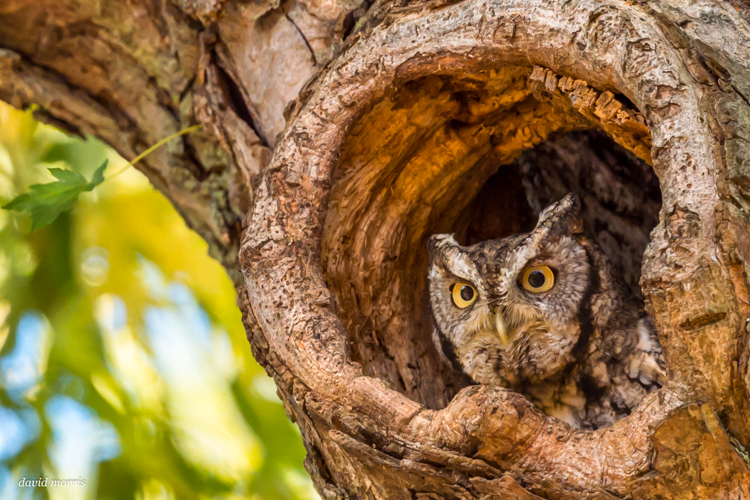Lily is a goat volunteer at Habitat Education Center in Belmont. If you’d like to get involved at Habitat, check out the award-winning Habitat Intergenerational Program (HIP), a volunteer community service and learning program that connects people of all ages and enables them to participate in environmental service projects together.
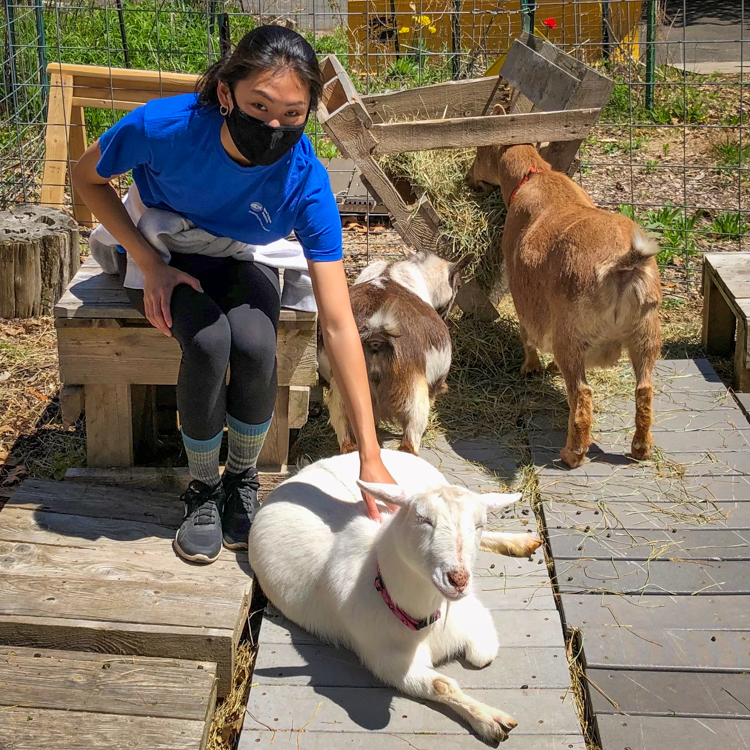
As a city high school kid with an interest in the environment looking for volunteer opportunities, it was clear to me that Mass Audubon would provide the experience in nature that I have always craved. Goat tending at Habitat Education Center in Belmont is unique, hands-on work that has brought me closer to nature than I’ve ever been.
There are plenty of rewarding and demanding chores to be done each day, from keeping the feeders stocked with hay to sweeping and scooping manure, but running the goats from their greenhouse home to the meadow is one of the most thrilling parts of being a volunteer.
All passersby love to watch as three or four of us run alongside the herd of six chubby goats, with the person in the lead shaking a tin can of pellets while trying to keep ahead of the two alpha males. Although they often seem quite lazy while basking in the sun for nearly half the day, goats don’t mess around when it comes to treats!
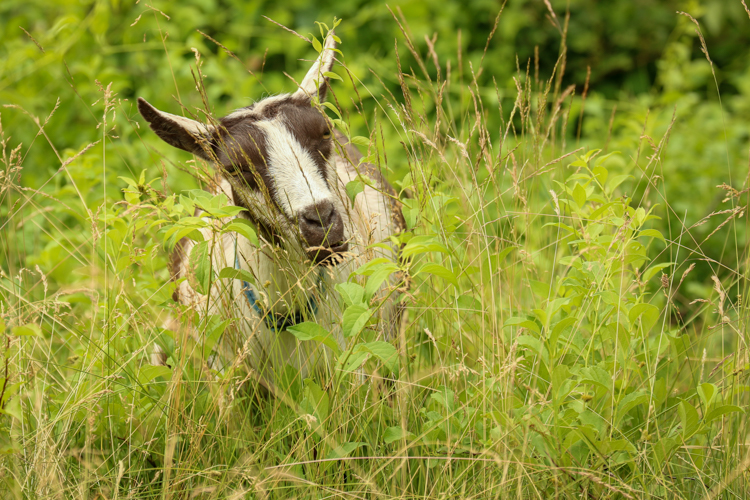
While I have an important job to do as a volunteer, the goats have their own mission: they are perfect “meadow mowers” in the summer. They eat invasive plant species and poison ivy and help to trim down woody plants in the meadow.
The goats certainly have unique personalities and traits. Lily is often dubbed the “roundest” goat by many visitors. Jacob sometimes requires a little more encouragement and attention from staff and volunteers, but he cracks us up when he won’t budge or refuses his medicine. Kudzu brushes against us asking for a rub, and Chester loves to lead the group to and from the meadow. They never fail to keep me and the other volunteers busy.
Each week I volunteer, I gain even more experience and responsibility working with animals and interacting with visitors. Goat tending has also become less of a job and more of an outlet to unwind from my busy life of AP classes, swim practices and meets, and family responsibilities. Sitting with the goats and brushing their fur or watching them nibble hay from their feeders are the little things that make me happy. I couldn’t have asked for a better experience.
In Your Words is a regular feature of Mass Audubon’s Explore member newsletter. Each issue, a Mass Audubon member, volunteer, staff member, or supporter shares their story—why Mass Audubon and protecting the nature of Massachusetts matters to them. If you have a story to share about your connection to Mass Audubon, email [email protected] to be considered for In Your Words in a future issue!


